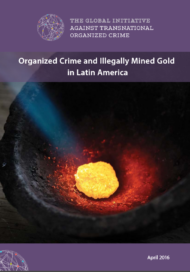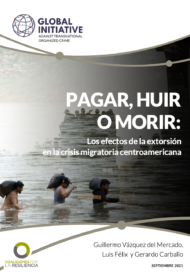Posted on 27 Mar 2018
by Sarah Kinosian and James Bosworth
The elevated, and in some cases epidemic, criminal violence that afflicts much of Latin America has given rise to a booming private security industry. Over 16,000 Private Military and Security Companies (PMSCs) employ an estimated 2.4 million people. While private security guards outnumber police officers around the world, the gap is far larger in Latin America. In Brazil, the ratio is four to one, in Guatemala, five to one, and in Honduras there are almost seven private guards for every public officer. For Latin American citizens who can afford it, security is for sale.
This report from the Peter D. Bell Rule of Law Program analyzes the important public policy questions raised by this trend. While countries in Latin America generally have legal frameworks in place to govern the activities of such companies, they often lack the infrastructure to enforce the rules or hold private military and security companies accountable when they break them. The result, in the most troubling cases, is that these companies become private militias accountable first and foremost to their benefactor rather than the rule of law.
Private security companies are certain to remain a prominent component of the security architecture in Latin America for the foreseeable future. As a result, governments in the region should take a strong interest in ensuring they are properly vetted, trained, supervised and held accountable for wrongdoing—whether deliberate or chronically negligent. The Montreux Document, a compilation of relevant international legal norms and good practices, provides a useful framework for addressing many of the existing gaps in regulation and enforcement of the activities of PMSCs in Latin America.
Key Recommendations:
- Latin American governments should express their support for the Montreux Document and employ it as a guiding framework for the adoption and implementation of regulations regarding private military and security companies.
- Legislation on private military and security companies must account for the resources and regulatory independence necessary to enforce national laws, from oversight to adjudication. Regulations regarding PMSCs must be balanced with the challenges and costs for firms implementing those regulations. Countries should incentivize companies to move from the informal sector to the formal sector and provide proper oversight. Enforcement of regulations should start with the “worst offenders,” those PMSC firms that act in a way that causes human rights abuses and worsens public security.
- As excessive use of force is most frequent around extractive industries and natural resource projects, international lending institutions should require an adherence to the Montreux Documents’s best practices and those of the International Code of Conduct for Private Security Service Providers (ICoC—which applies to companies instead of states) as a precondition for loans on these projects.
The report is available in both English and Spanish (see below).



